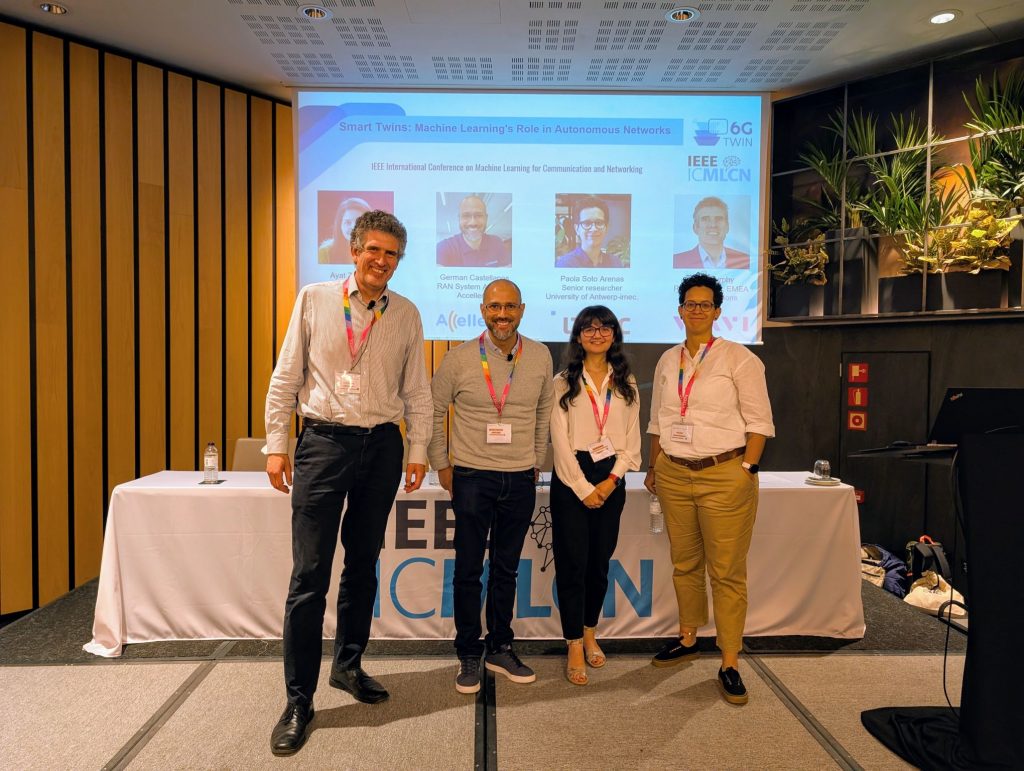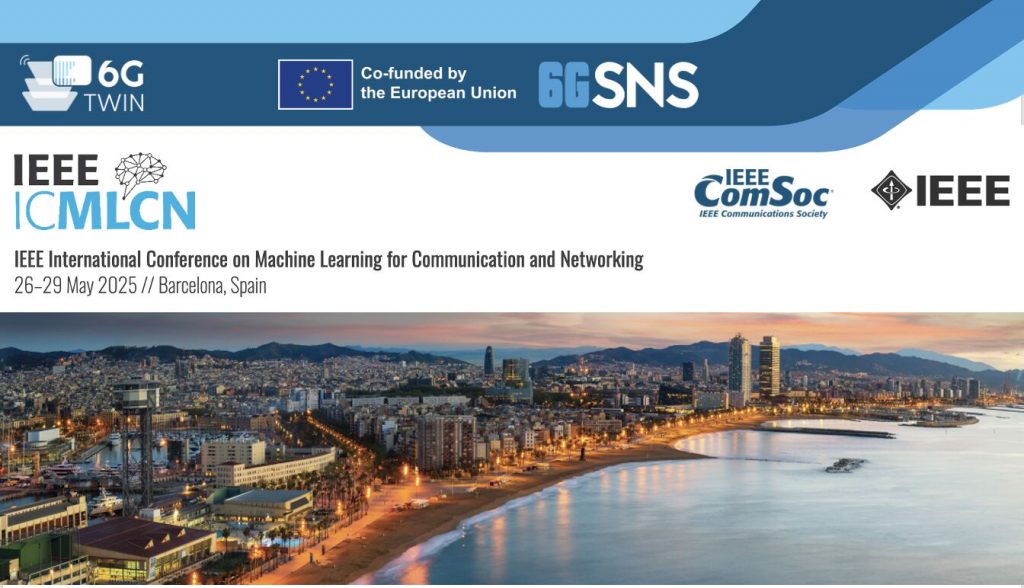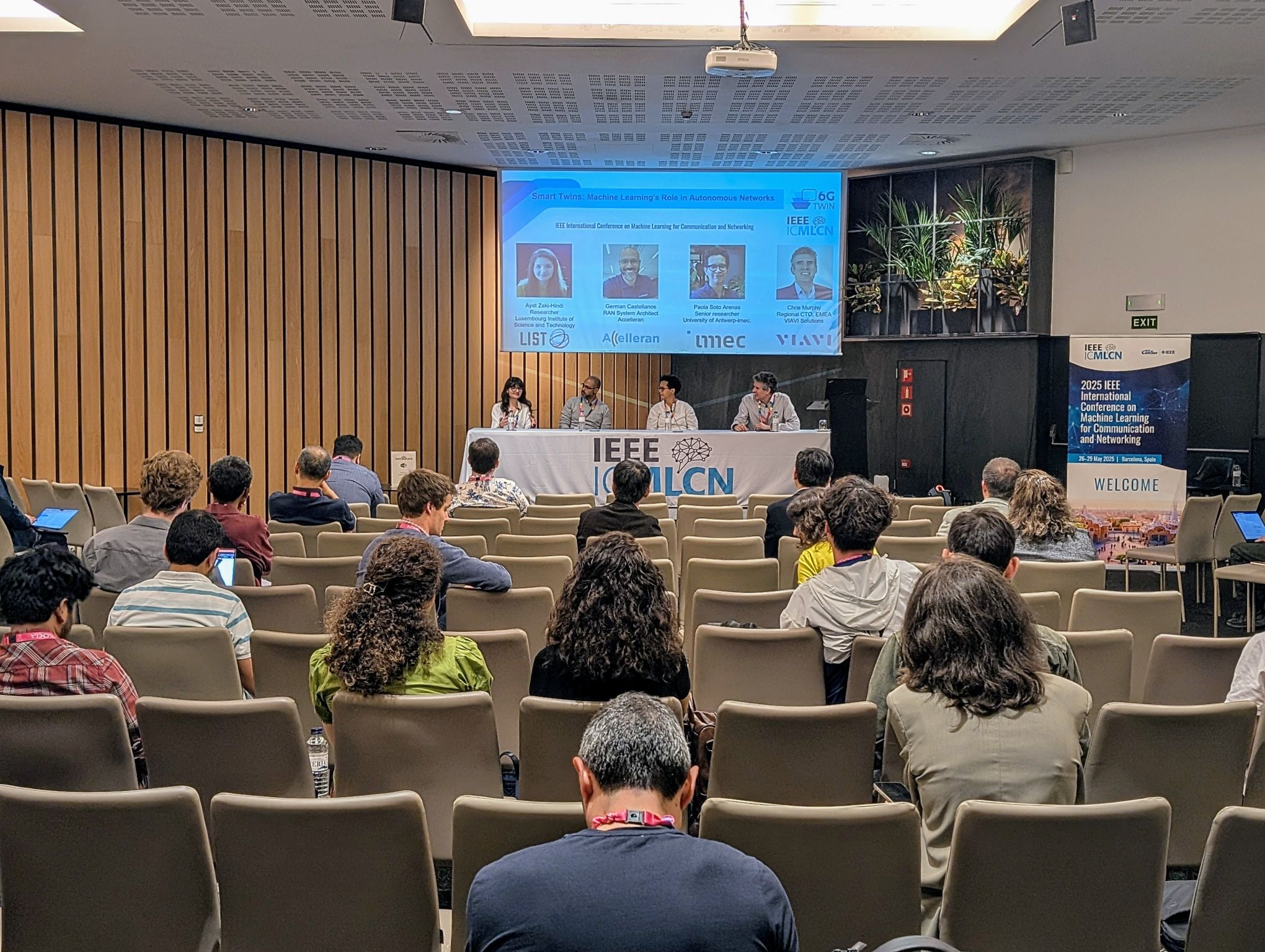The 6G-TWIN project was pleased to contribute to the 2025 edition of the IEEE International Conference on Machine Learning for Communication and Networking (ICMLCN), held from 26–29 May in Barcelona, Spain. Hosted by the IEEE Communications Society, ICMLCN is a leading venue for cross-disciplinary dialogue between the machine learning and communication systems communities.
As part of the official programme, VIAVI Solutions led a panel discussion titled “Smart Twins and Machine Learning’s Role in Autonomous Networks”. Moderated by Chris Murphy (VIAVI), the session gathered expert perspectives from Ayat Zaki Hindi (LIST), German Castellanos (Accelleran), and Paola Andrea Soto Arenas (iMEC), all representing partners in the 6G-TWIN consortium.

Key Learnings and Insights
Digital Twins as enablers of autonomous 6G Networks
The panel reinforced the vision of 6G-TWIN: digital twins will be essential for enabling self-adaptive, AI-native network management. Their role extends beyond static simulation; they serve as live, evolving models that can reflect and predict the real-time state of complex networks.
Data and telemetry are central to realism and impact
Robust telemetry systems are critical to creating accurate digital twins. The panel discussed strategies for feeding digital twins with meaningful, timely network data to enhance fidelity and responsiveness, particularly for demanding use cases such as tele-operated driving.
ML-Driven orchestration needs co-design with twin architecture
Machine learning can only operate effectively in dynamic environments if it’s embedded into a coherent orchestration framework. The panellists shared how 6G-TWIN integrates intelligent decision-making modules directly within the twin ecosystem, ensuring synchronised perception and control across the system.
Energy Efficiency is both a goal and a metric
The use of digital twins to assess, optimise, and even forecast energy consumption in live networks emerged as a powerful application. As sustainability becomes central to 6G design, the ability to simulate and orchestrate based on energy profiles is increasingly valuable.
Synergies with 6G-DALI: federated testbeds and data spaces
Complementary research efforts were also highlighted, particularly the 6G-DALI project, which aims to federate digital twins and testbeds into a secure data space for 6G experimentation. The interoperability between such platforms is essential to scaling digital twin adoption.
Interactive Exchange with the Community
The panel concluded with an open Q&A session that sparked deep discussions around model reliability, explainability, and how digital twins could support reinforcement learning in adaptive networks. The audience engagement reaffirmed the relevance of these topics across both academic and industrial domains.

About ICMLCN 2025
The IEEE International Conference on Machine Learning for Communication and Networking (ICMLCN) brings together experts working at the intersection of ML and communications, with a focus on applying AI techniques to design, operate, and optimise modern communication networks. The 2025 edition took place in Barcelona and featured a rich programme spanning wireless, optical, Internet, and next-generation networking domains.






Comments are closed